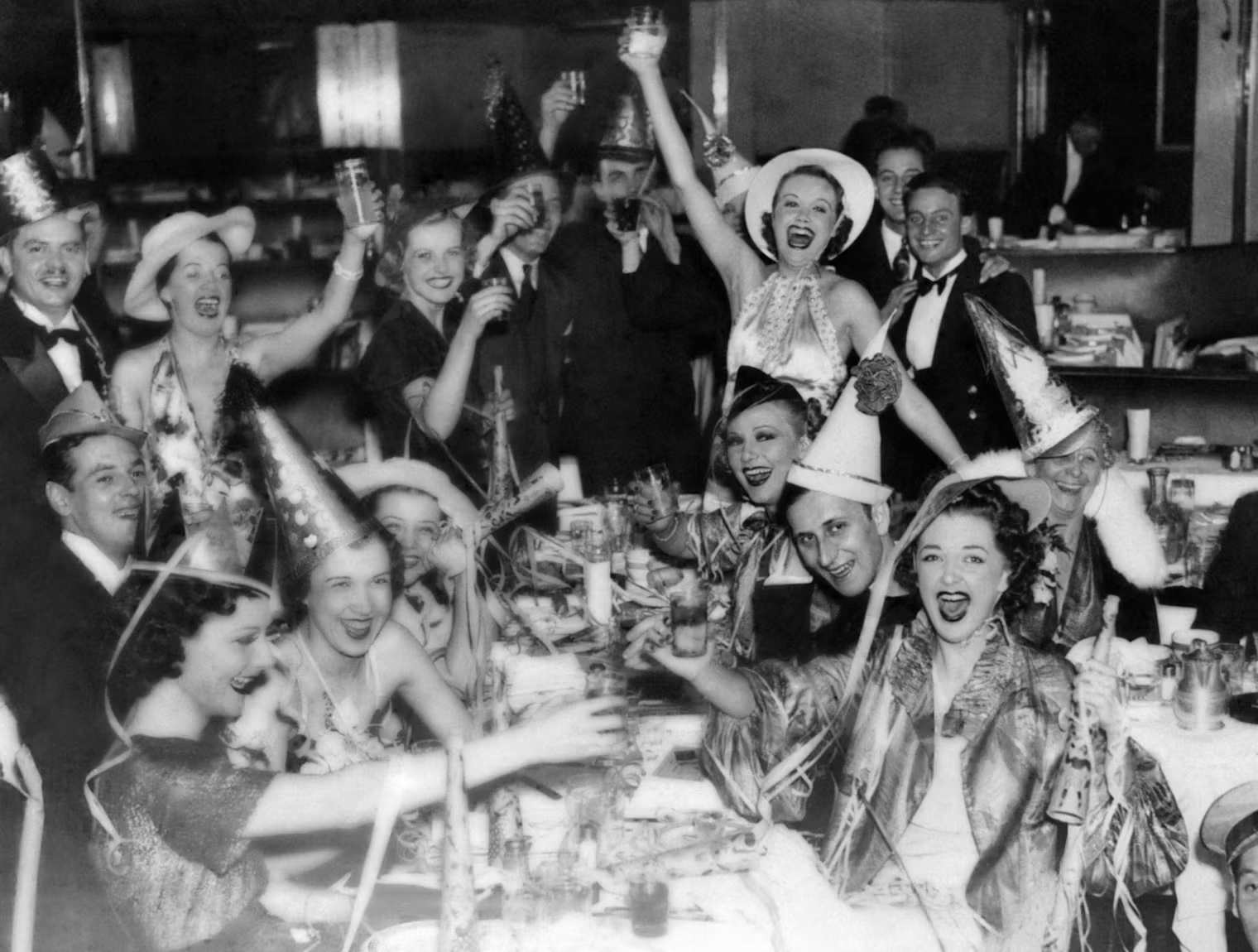
Celebrants reflect an air of joyous optimism on New Year’s Eve 1945.
While Allied troops fought hunger, bitter cold and advancing German forces in the forests of Belgium, a Movietone News reel appeared in North American theatres declaring the new year of 1945 “V-Year…the year of final victory.”
Indeed, things were looking up. U.S., British and Canadian forces had pulled off history’s largest seaborne invasion in June 1944, taken back France by Aug. 30, and liberated the Scheldt, securing access to the critical port of Antwerp, by November.
Weeks of bad weather broke in the Ardennes on Christmas Eve, allowing aircraft to finally deliver desperately needed food and ammunition to besieged Americans fighting the Battle of the Bulge around Bastogne, Belgium.
Soon, Allied forces would be entering Germany. The Normandy Campaign had cost them 209,000 casualties, including 5,000 Canadian dead. More would die. But ultimate victory in Europe—and the Pacific—seemed just a matter of time.
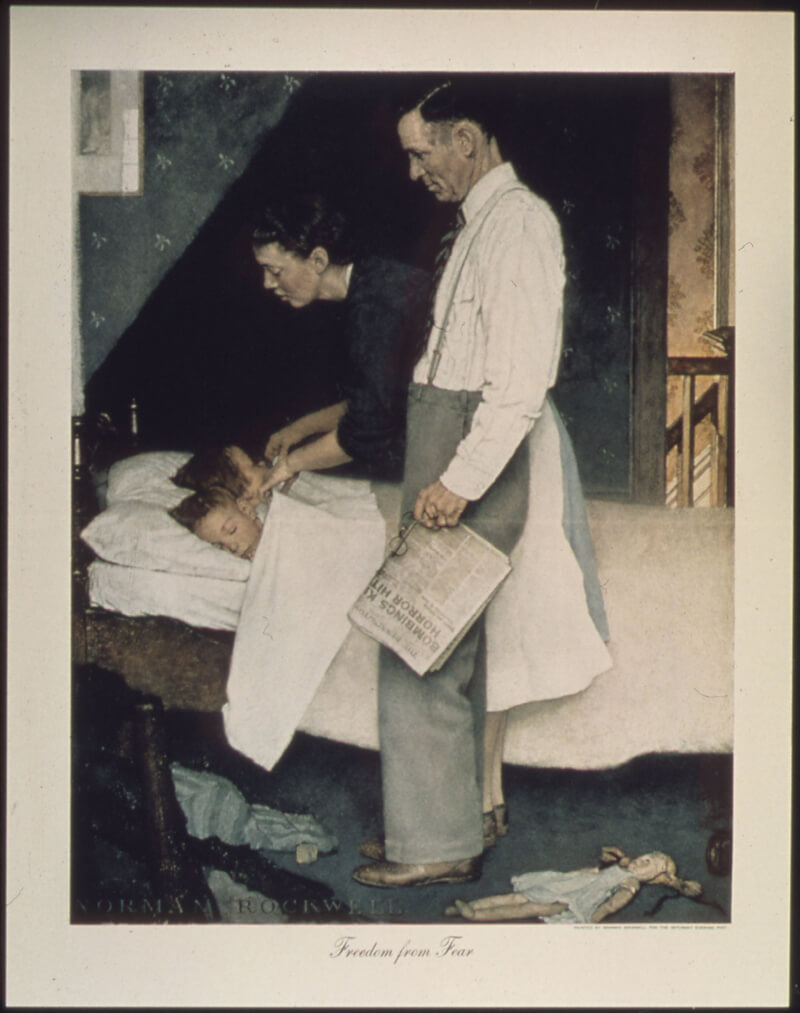
Norman Rockwell painted “Freedom from Fear” as last of his “Four Freedoms” series based on President Franklin Roosevelt’s 1941 state of the union address. The piece has been described as depicting American children being tucked into bed by their parents while the Blitz rages across the Atlantic in the United Kingdom.
[Norman Rockwell]
This reel, however, showed boisterous, behatted celebrants having the time of their lives before transitioning to images of soldiers at war. “Blow that horn! Throw your hat in the air!
“But when you get it back, paste this inside it: It won’t be over over here until Johnnie comes marching home sweet home for keeps, and total war gives way to total peace.”
Predictably, leaders on both sides of the war sounded optimism for the coming year but now, for the Allies at least, their message was justified, as 1945 would, indeed, be the war’s final year.
“Two years ago the United Nations were on the defensive in every part of the world,” President Franklin D. Roosevelt told his fellow Americans in what would be his last New Year’s Day message. “Today we are on the offensive.
“The walls are closing in remorselessly on our enemies. Our armed forces are gathering for new and greater assaults which will bring about the downfall of the Axis aggressors.”

Soviet New Year’s cards for 1945 reflected a less bitter tone than previous war years. “1945 is coming,” says one. “Judgment and death to the cursed enemies!” Says another: “1945. Happy New Year! Congratulations on the forthcoming victory!”
King George VI broadcast a Christmas message to Commonwealth forces “on the battlefields, on the high seas…in foreign lands,” to the wounded and sick, and the doctors and nurses “who are in their labour of mercy.” He addressed, too, “prisoners of war and…their relatives in their loneliness and anxiety.”
“We have rejoiced in the victories of [1944],” he said, “not least because they have broken down some of the barriers between us and our friends, and brought us nearer to the time when we can all be together again with those we love.
“We do not know what awaits us when we open the door of 1945, but if we look back to those earlier Christmas days of the war, we can surely say that the darkness grows less and less.
“The lamps which the Germans put out all over Europe, first in 1914 and then in 1939, are being slowly rekindled…. Anxiety is giving way to confidence, and let us hope that before next Christmas Day, God willing, the story of liberation and triumph will be complete.”
Jan. 1, 1945, was a Monday and on this Monday the Luftwaffe launched Operation Bodenplatte (baseplate), an attempt to cripple Allied air forces in the Low Countries and gain air superiority during a stagnant stage of the Battle of the Bulge so that the Wehrmacht and Waffen-SS forces could resume their advance.
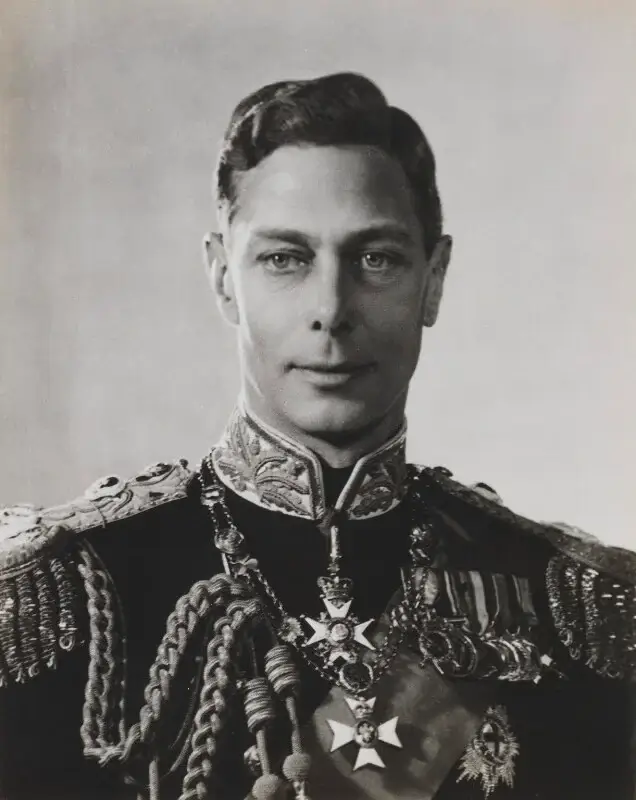
In his annual address closing out the year of 1944, King George VI declared that “the darkness grows less and less.” [Dorothy Wilding/National Portrait Gallery, London]
Many of the Allied losses were on the ground and the planes were replaced within a week. Their aircrew casualties were small.
The Germans, on the other hand, had already lost 644 fighters and 322 pilots killed, along with 133 wounded and 23 captured, between Dec. 17 and 27. Bodenplatte cost them another 271 fighters and nine Ju 88s destroyed with 89 more aircraft damaged and 213 irreplaceable fighter pilots killed or missing, plus 21 wounded.
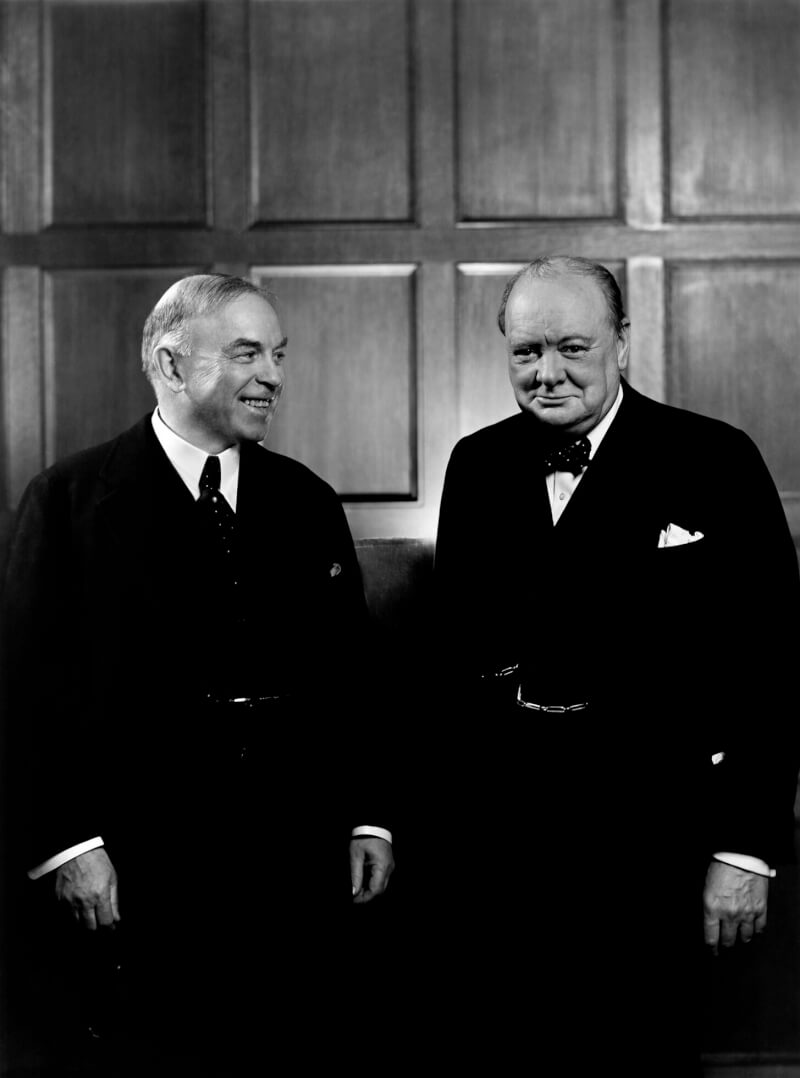
Yousuf Karsh photographed Prime Minister Mackenzie King with Winston Churchill outside the Commons chamber on Parliament Hill in 1941 shortly after taking the famous “Roaring Lion” portrait of the British PM.
[Yousuf Karsh]
The Führer was at the time in the process of activating the Volkssturm, a national militia of children and the elderly—a last, desperate attempt to ward off the inevitable.
In his speech, Hitler railed against the Jews, whom he claimed were orchestrating Allied decision-making. He warned that should it fall, the Reich would be “torn to pieces,” that 15-20 million Germans would be transported to other countries, that German youth would be “corrupted” and “the remnants of our volk” enslaved.
“It would also and above all bring with it the starvation of our masses of millions,” he said. “You either live in freedom or die in slavery.
“In opposition to that, we are determined to do anything necessary. The world should realize that this state will therefore never capitulate.”
He had another 3,600 words for his military, telling them that their accomplishments were “superhuman.”
“I…am today more than ever convinced that at the end of this struggle will stand a glorious success, unique in our history,” he told them.
Hitler was still recovering from wounds suffered in the plot by a cadre of his generals and other officers to assassinate him by detonating a briefcase of explosives during a conference at the Wolf’s Lair, his forest headquarters in present-day Poland.
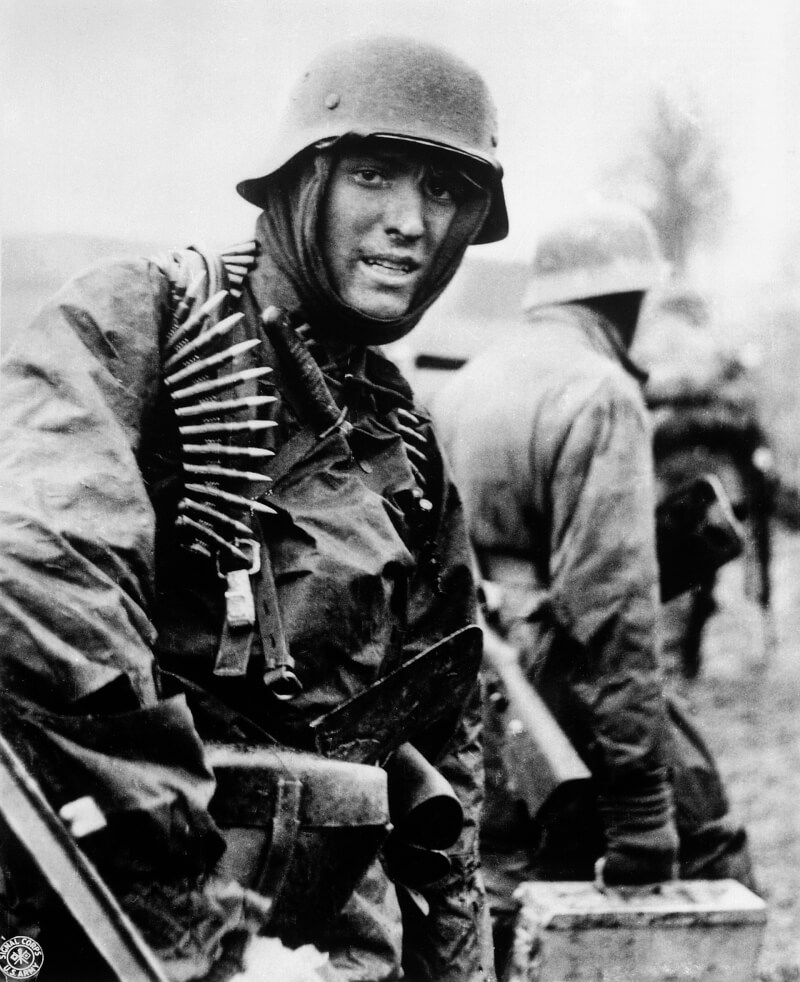
A German machine gunner carries ammunition boxes forward in the Ardennes in December 1944.
[Wehrmacht/U.S. Army]
“He has stood above all for deception and lying,” King wrote. But Hitler’s “deceit and lying,” he added, “are perhaps becoming less formidable than they were.”
King said the fact Hitler suggested the war could end in the winter of 1946 “makes me believe more strongly than ever that peace will come in 1945.
“I keep beginning of it as the beginning of the Easter season.”
Easter 1945 fell on April 1. Germany capitulated May 7. VE-Day was declared May 8.
Advertisement



















